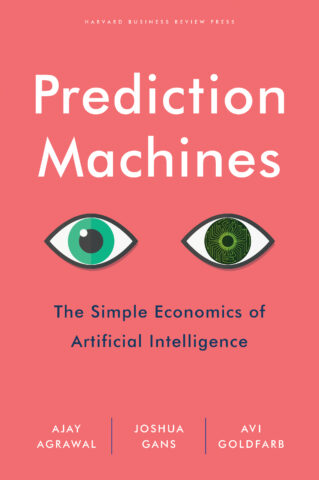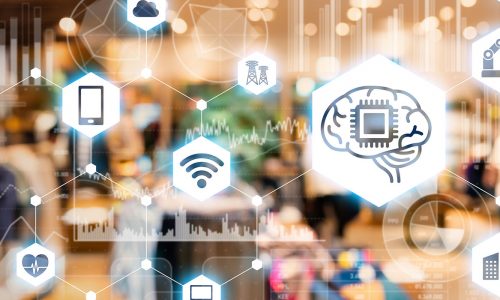AI, this ally that will strengthen your predictions
Artificial Intelligence (AI) will be worth 430 billion dollars in 2022 (vs 12,4 invested in 2018 for example). But what does this figure really mean? In their book Prediction Machines, Ajay Agrawal, Joshua Gans and Avi Goldfarb explain that AI should be understood primarily as a predictive tool for organizations.
Artificial intelligence has sent shockwaves through the entire economic sphere and raised numerous ethical questions. For some, AI is like Eldorado, with potential for massive and unexpected increases in productivity. For others, the outlook is bleak, with AI posing significant threats to employment and even to humanity as a whole. Not counting the many startups for whom AI is at the core of their business structure, most companies are not yet equipped to understand what they can expect from AI, or to decide if and when they should consider integrating it.

Based on Prediction Machines, The Simple Economics of Artificial Intelligence by Ajay Agrawal, Joshua Gans and Avi Goldfarb (Harvard Business Review Press, 2018)
Artificial Intelligence, or a prediction revolution
AI targets prediction. According to the authors, prediction is not “telling the future”. Essentially, it is using information that already exists to generate new information. This information concerns the future (what the temperature will be like tomorrow, for example) as much as the present. When Google Translate effectively transposes a text from one language to another, it is because its AI has “predicted” which words and syntax will correspond best with the intention of the author.
With the deep learning technologies, predictions are now much cheaper, faster and more reliable. In the past, taxi drivers needed many years of experience to be able to predict the best route to take, regardless of the traffic or weather conditions. Now thanks to tools like Waze, anyone can achieve the same level of efficiency without training.
The scope of AI is quite varied; image recognition, fraud detection, medical diagnosis, autonomous driving, and of course all parts of predictive analysis. It’s about recognizing patterns in available data in order to predict the likelihood of a particular outcome.
© Copyright Business Digest - All rights reserved




